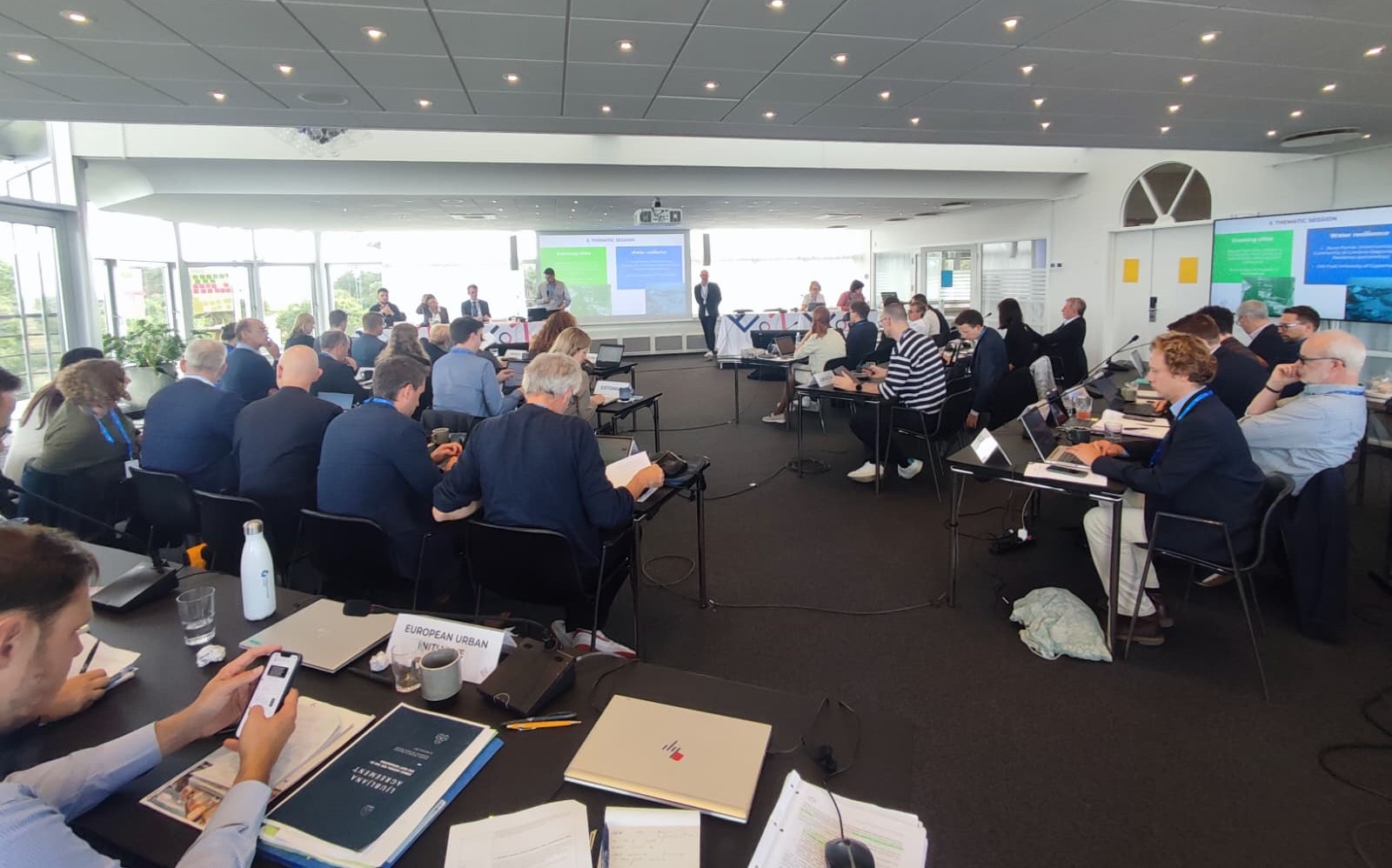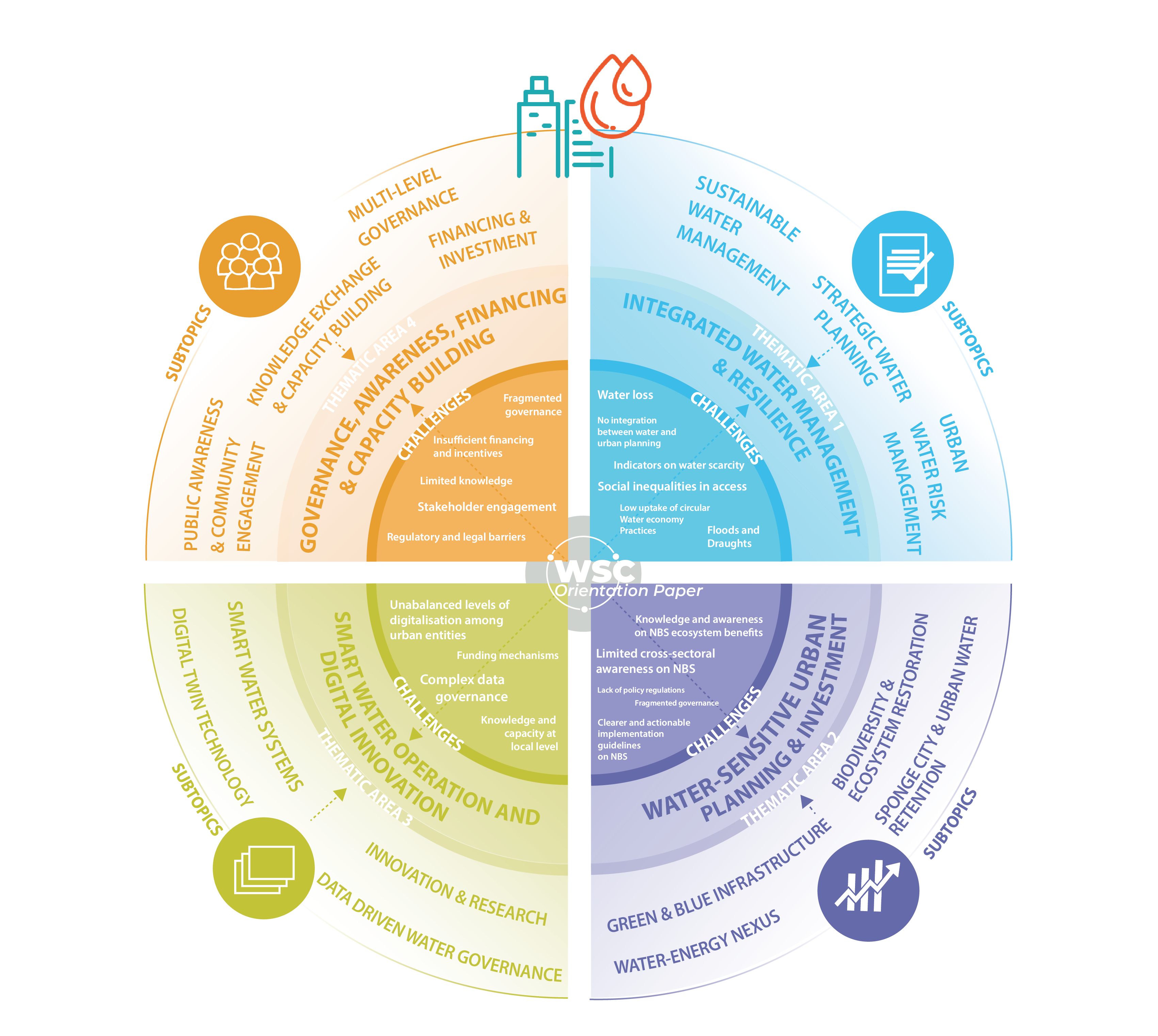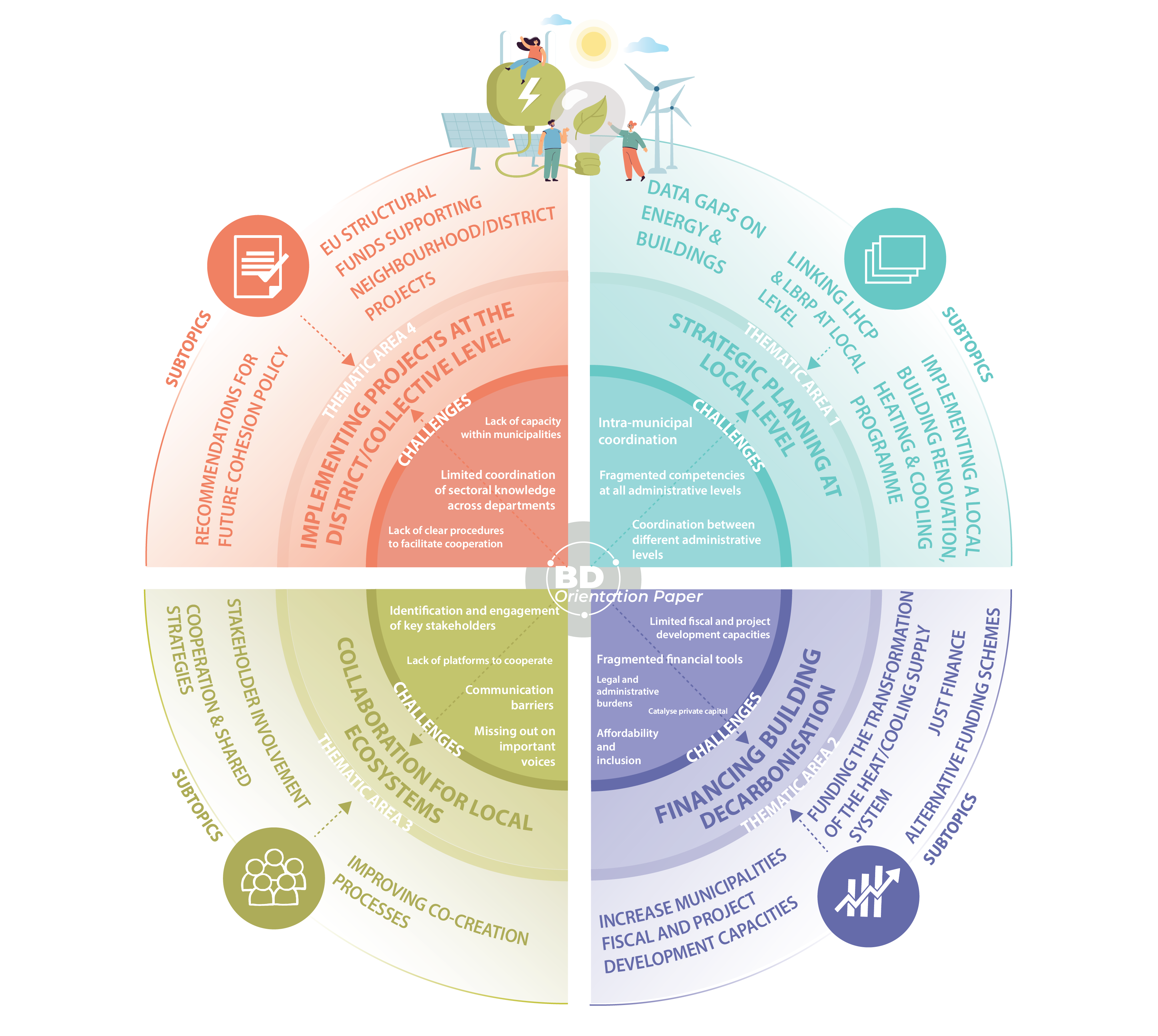
Building Decarbonisation and Water Sensitive City Orientation Papers have been officially published
Starting their work in January 2025, both Partnerships have now delivered their first major output: Orientation Papers. These documents narrow down the thematic scope of the Partnership and define their objectives, considering the mandate of the partner organisations, as well as the knowledge, and resources available within the partnership.
Water Sensitive City Orientation Paper
As highlighted in the recently published EU Water Resilience Strategy, Europe’s water is under significant pressure, facing risks related to efficiency, scarcity, pollution and extreme weather events, such as flooding and droughts. In response to this reality, the water-sensitive city concept treats the urban area as a catchment, restoring water balance while providing key ecological services such as flood protection, groundwater recharge, as well as recreation. Its successful implementation relies on collaboration across governance levels.
The endorsement of the Water Sensitive City Orientation Paper reflects the collective commitment of our Partnership to place water at the heart of urban policies, foster innovation through nature-based and digital solutions, and ensure that cities are better prepared for future challenges. As Coordinator, Coimbra Region is committed to driving the WSC objectives of resilience, sustainability, and inclusiveness, fully aligned with the Urban Agenda for the EU principles of better regulation, better funding, and better knowledge for European cities. The paper paves the way towards an ambitious Action Plan that will translate this vision into concrete solutions.
The Water Sensitive City Partnership envisions a future where European cities become more resilient, sustainable, and climate-adapted by placing water management at the heart of urban policies. This includes addressing all aspects of water (stormwater, wastewater, groundwater, and surface water), within spatial and urban planning instruments to ensure holistic solutions. The Partnership aims to strengthen cities’ resilience to extreme events through water-sensitive planning, increase water resilience through large-scale Nature-based Solutions and Grey-Green Infrastructures, promote data-driven methodologies and digital tools to enhance water management processes, and explore innovative governance and financing models.
From January to June 2025, the Partnership undertook an intensive collaborative process to define the thematic focus of this Orientation Paper, which resulted in the identification of 4 major thematic areas:
- Integrated Water Management & Resilience
- Water-Sensitive Urban Planning and Investments
- Smart Water Operation & Digital Innovation
- Governance, Awareness, Financing & Capacity Building.
Together, the thematic areas contribute to the three pillars of the Urban Agenda for the EU by fostering coherent policy and planning frameworks for water-sensitive cities (Better Regulation), sharing best practices and capacity-building for more effective decision-making (Better Knowledge), and exploring financing mechanisms to enable the mainstreaming of water-sensitive investments (Better Funding).
Building Decarbonisation Orientation Paper
The Building Decarbonisation Partnership comes at a moment when the European Union has set very ambitious energy and climate goals, including the decarbonisation of the building stock by 2050. For achieving these goals Member States are obliged to develop and submit National Energy and Climate Integrated Plans (NECPS) and Long-Term Renovation Strategies for improving the energy efficiency and retrofitting of the building stock. The recently adopted Energy Efficiency Directive (EED) also foresees for cities of minimum 45,000 inhabitants to develop local cooling and heating plans. Adding to this, the Renewable Energy Directive (RED) also includes a mandatory percentage of renewable energy in these local heating and cooling plans.
EU decarbonisation targets are difficult to bring down to reality. Cities can play a strong role leading, planning and financing specific projects for reducing the emissions related to buildings. This Orientation Paper is a mean to strengthen our collaboration and a relevant step to support cities in delivering their local renovation plans with a district approach, including cooling and heating networks, while exploring the financial instruments needed and fostering collaboration clusters.
The Building Decarbonisation Partnership will adopt actions to test and demonstrate multilevel governance approaches; integrating district and neighbourhood strategies with local heating and cooling plans, will be essential for decarbonizing Europe’s building stock as the EU and Member States implement the EBPD, EED, RED, and FED with support from local authorities.
From January to June 2025, the Partnership undertook an intensive collaborative process to define the thematic focus of this Orientation Paper, which resulted in the identification of 4 major thematic areas:
- Strategic Planning at Municipal Level
- Financing Building Decarbonisation
- Collaboration for Local Ecosystems
- Implementing Projects at District/Neighbourhood Level
The thematic areas of the Building Decarbonisation Partnership directly contribute to the Better Regulation pillar by identifying gaps and synergies across EU directives and strengthening strategic planning at municipal level to translate EU ambitions into practical local action. They support Better Funding by addressing municipalities’ financial constraints and mobilising sustainable finance through stronger public–private coordination. Finally, they contribute to Better Knowledge by promoting integrated, place-based approaches, fostering citizen-led initiatives, and developing scalable, community-focused solutions that enhance learning and replication across Europe.
Next steps
After the finalisation of the Orientation Paper, the two partnerships have already embarked on the next phase, which is that of the Action Plan. During this phase each partnership will aim at developing actions that contribute to the thematic focus that they have identified in the first phase, as well as the 3 UAEU pillars – Better Regulation, Better Funding and Better Knowledge.

